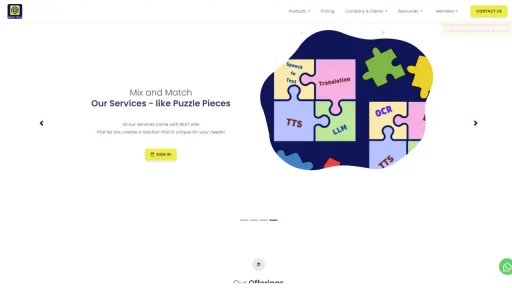What is PGS Principles?
PGS Principles is a comprehensive framework designed to guide organizations in the effective implementation of Performance Governance Systems (PGS). The tool serves as a structured approach enabling businesses to enhance their performance, accountability, and transparency. Through a series of well-defined principles, PGS Principles empowers organizations to align their operational practices with strategic objectives, fostering a culture of continuous improvement. By focusing on critical areas such as stakeholder engagement, risk management, and performance measurement, the tool equips leaders with the insights needed to make informed decisions. Additionally, PGS Principles promotes a systematic methodology that encourages organizations to review and adapt their practices regularly, ensuring they remain agile and responsive to changing environments. Ultimately, it seeks to cultivate sustainable practices that contribute to long-term success and stakeholder satisfaction.
Features
- Structured Framework: Provides a clear set of principles and guidelines for effective governance and performance management.
- Stakeholder Engagement Tools: Offers mechanisms for actively involving stakeholders in decision-making processes.
- Performance Measurement System: Includes metrics and benchmarks to assess organizational performance accurately.
- Risk Management Integration: Incorporates risk assessment tools to identify and mitigate potential challenges.
- Continuous Improvement Focus: Encourages organizations to regularly evaluate and refine their practices for ongoing enhancement.
Advantages
- Enhanced Accountability: Promotes transparency and accountability within the organization, fostering trust among stakeholders.
- Informed Decision-Making: Provides valuable insights through performance data, enabling leaders to make data-driven decisions.
- Increased Agility: Helps organizations adapt quickly to changing circumstances through regular review and adaptation processes.
- Improved Stakeholder Relationships: Strengthens connections with stakeholders by actively involving them in governance practices.
- Long-Term Sustainability: Supports the development of sustainable practices that align with organizational goals and stakeholder interests.
TL;DR
PGS Principles is a structured framework that guides organizations in implementing effective performance governance systems, enhancing accountability, and fostering continuous improvement.
FAQs
What types of organizations can benefit from PGS Principles?
PGS Principles is applicable to a wide range of organizations, including public sector entities, non-profits, and private companies looking to improve their governance and performance management practices.
How can PGS Principles improve stakeholder engagement?
By providing tools and mechanisms for stakeholder involvement in decision-making, PGS Principles fosters greater collaboration and ensures that stakeholder perspectives are considered in governance processes.
Is PGS Principles customizable for different industries?
Yes, PGS Principles can be tailored to fit the specific needs and contexts of different industries, allowing organizations to implement governance practices that are relevant to their operational environment.
What is the role of performance metrics in PGS Principles?
Performance metrics play a crucial role in PGS Principles by providing measurable indicators of success, enabling organizations to track progress, identify areas for improvement, and make informed decisions based on data.
How often should organizations review their PGS implementation?
Organizations should conduct regular reviews of their PGS implementation, ideally on an annual basis, to assess effectiveness, incorporate feedback, and ensure alignment with changing goals and contexts.









